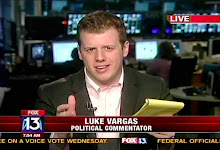The following is the editorial that I co-wrote and was published in the BB&N POV, the high school political magazine that I helped to create and for which I serve as the editor-in-chief. To download the BB&N POV navigate over to www.bbnpov.com
~~~~~~~~~~~~~~~~~~~~~~
“I don’t think I’ve ever heard that before, and I’ve heard some pretty absurd explanations for September 11th. And I would ask the Congressman to withdraw that comment and tell us that he didn’t really mean that.”
That is the angry retort that 2008 Republican presidential hopeful Rudy Giuliani threw at fellow candidate Ron Paul. Texas Congressman Paul stated bluntly in the Republicans’ South Carolina debate that he believes American foreign policy in the Middle East has fostered much of the hatred for America from Middle Eastern extremists which has led to tragedies such as 9/11; much more so than their possible abhorrence of American liberties and way of life.
We feel that Mr. Paul is correct. Although Mr. Giuliani, in his forced show of disgust, commented that he had never heard this explanation for Muslim aggression, this theory is not new. The basis of Mr. Paul’s argument is the theory of “blowback.” Roland S. Martin, in a CNN editorial on this subject, defines “blowback” as someone’s action coming back to afflict them. In essence, it makes perfect sense. Imagine living in Iraq during the Gulf War and watching as your country was partially destroyed by the United States. Regardless of whether or not the attacks were justified, you would still feel a level of animosity for the power that had assaulted your country. As the United States attempts to establish bases and ministries, and to interfere in Middle Eastern politics and policies, without regard for the outrage of the citizens of these nations, we do little but breed aggression. The United States has always defended, and must continue to defend our own interests in the world, but we must also be mindful of how we go about achieving our goals. In this age of warfare, diplomacy and the tools that go along with it must not be abandoned.
In 1974 when President Nixon traveled to the Middle East for a seven-day tour, he was welcomed with cheers from the citizens, lauding Nixon and his administration. America has changed little from the time of Nixon in regard to what America stands for, so the argument that the terrorists hate America for our liberal ideals is foolish. If this were the real reason for terrorist hostility, then why aren’t targeting free constitutional governments that are not directly allied with America?
Mr. Giuliani should also rethink his careless use of the events of 9/11 as a way to gain support or, in the case of last week’s debate, applause. It is utterly detestable that Mr. Giuliani quickly dismisses Mr. Paul’s reasonable views by using the misery of 9/11, while pushing himself to be seen as the winner of the debate. It shows the true naiveté of the American people when they blindly give applause to someone who is, in reality, doing little but capitalizing on his presence during that catastrophe, not defending its sanctity.
The theory of blowback, if properly considered and examined, may be an important way of beginning to end the promotion of anti-American sentiment in those Middle Eastern countries where our policies have the greatest impact. Mr. Paul was quite right when he asked how we would feel if our own country were overrun by a foreign power; how our citizens would feel; and whether those feelings might, in some respects, parallel those of the terrorists who now wish to harm us.
Sunday, June 10, 2007
Subscribe to:
Post Comments (Atom)




No comments:
Post a Comment